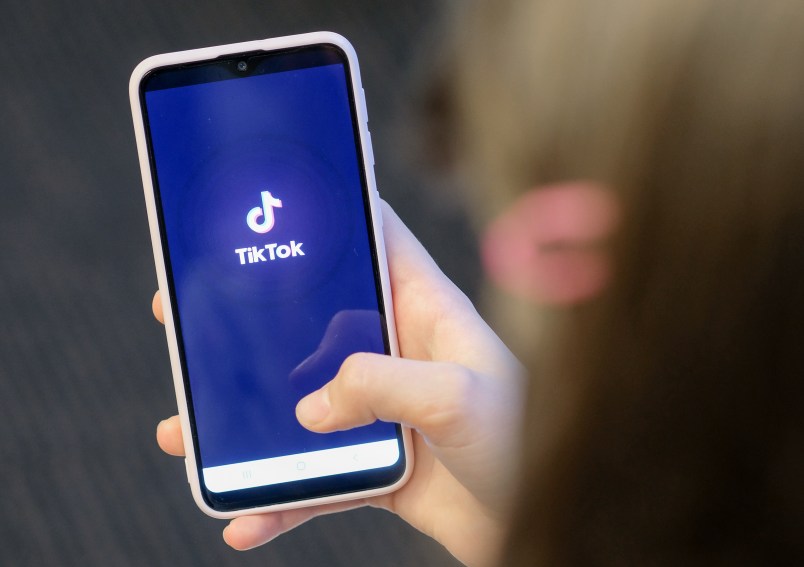U.S. general manager of TikTok Vanessa Pappas said early Saturday that the video app wasn’t “going anywhere,” in spite of plans announced by President Donald Trump on Friday night that he would ban it.
“As far as TikTok is concerned we’re banning them from the United States,” Trump said, according to NBC News.
But in a one-minute video message to the app’s users in the United States posted to its Twitter account early Saturday, Pappas had a different message.
“We’re not planning on going anywhere,” Pappas said, adding that the the video-sharing app was “here for the long run.”
Trump has said he could ban the app using an executive order telling reporters Friday according to the NBC News report that he has “that authority.”
The President’s plans to ban the app follow reports Friday that Microsoft was in talks to acquire the app’s U.S. operations.
Pappas’ message to users comes hours after a spokesperson for TikTok said in a statement obtained by NBC News that the app creates jobs for Americans and it is committed to protecting user privacy and safety.
The TikTok app is owned by ByteDance, one of the largest tech companies in China. The app’s Chinese ownership has become the subject of concern for lawmakers, regulators and privacy activists. ByteDance, for example, is required to follow Chinese censorship laws, and some say the video app may be forced to surrender user data to the Chinese government under the country’s national security law.
Several companies have even directed their employees to delete the app citing concerns about surveillance and potential espionage.
But the spokesperson for TikTok maintained in the app’s statement that “U.S. user data is stored in the U.S., with strict controls on employee access.”
“We are committed to protecting our users’ privacy and safety as we continue working to bring joy to families and meaningful careers to those who create on our platform,” the statement added.
TikTok CEO Kevin Mayer had responded to recent privacy concerns raised about the app by offering Wednesday to allow U.S. regulators and privacy experts to take a closer look at its software code amid claims about data-sharing on American users with the Chinese government.
According to the statement referenced by NBC News, the video sharing app added 1,000 people to its U.S. team this year, and is “proud to be hiring another 10,000 employees into great paying jobs across the U.S.” The spokesperson said that the app’s reported $1 billion creator fund “supports U.S. creators who are building livelihoods from our platform.”
The job creation angle taken by the TikTok app, comes as the United States continues to struggle with unemployment made worse by the coronavirus pandemic. Data from the Census Bureau late last month showed at least four consecutive weeks of decline in the number of employed people nationwide.
Earlier this week, the Commerce Department also announced that the American economy took its worst quarterly plunge ever — shrinking at a 33% annual rate in its most recent quarter.
Trump’s plans to ban TikTok also follow taunting claims by some of its users who in June said they signed up for tickets to his campaign rally in Tulsa with no attention of going. The rally, which then Trump campaign manager Brad Parscale boasted had registrations for a million tickets, was sorely under-attended — filling about one-third of a 19,000-seat stadium.







Tic Toc users saved numerous lives by overbooking the Tulsa superspreader event. There could have been 3 or 4 times as many cases spawned with a full venue.
Those TikTok young voters will be pissed!
Vote Biden
How to Tik Tok!
https://www.youtube.com/watch?v=-YtxfJyTSR0It’s all about the rally and Sarah Cooper. That, and picking another fight with Chye-nah. National security, to put it mildly, has not traditionally been a priority for this administration.
They operate from an American sub with an American CEO so I doubt very much that he can do one thing about it without running afoul of the first amendment.
Has the motherfucker resigned yet? That would solve all his problems.
Doesn’t the Communist Party in China repress their citizen’s access to various forms of social media? Does this action means the t rumpp is following the lead of Communism by suppressing American’s access to tiktok?